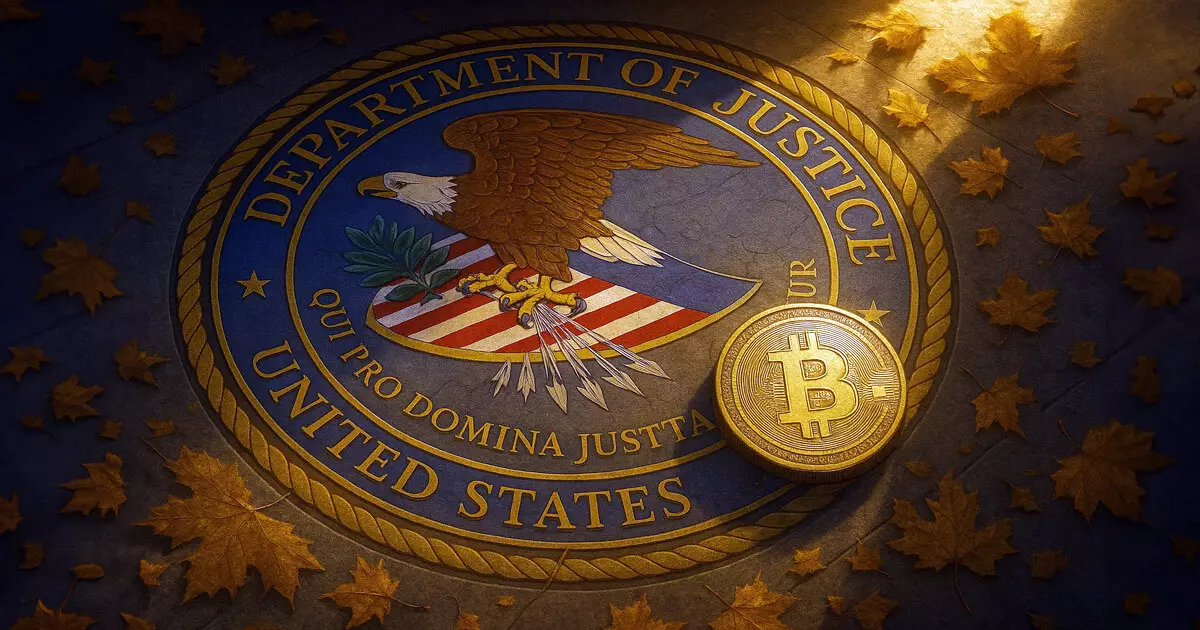The U.S. Department of Justice (DOJ) has found itself in a precarious position as it initiates a review of how investors who fall victim to digital asset fraud are compensated. Critics of traditional compensation methods argue that they are outdated and have failed to adapt to the rapidly evolving landscape of cryptocurrencies. Most notably, the DOJ has drawn fire for its reliance on asset values at the time of claims submission rather than taking into account current market valuations. This fundamental oversight puts many investors in a bind, often receiving reimbursement that is a fraction of what they might have been entitled to had the system adapted timely to market dynamics.
Every move the DOJ makes seems to echo through the world of cryptocurrency, especially in the aftermath of catastrophic collapses like those of FTX, Celsius, and Voyager. These calamities have become synonymous with mismanagement and fraud, yet there is an alarming trend wherein victims find themselves under-compensated by a staggering 78%, according to recent estimates. Instead of receiving their just rewards based on current market values, which have changed dramatically since the time of their claims, affected investors often pocket reimbursements in fiat that reflect only a fraction of their assets’ potential worth. With Bitcoin’s value soaring from under $20,000 to over $108,000 in just a couple of years, it becomes glaringly clear that the DOJ’s current compensation model virtually disregards investors’ rightful earnings.
Regulatory Footprints in Digital Asset Landscape
It’s not just the financial losses that echo concern; it’s the legal framework—or lack thereof—that surrounds digital assets. The DOJ itself has acknowledged that the law needs to evolve to cater to the unique characteristics inherent to digital currencies. Unfortunately, their initiatives have thus far resulted in a tepid response rather than a bold drive for modernization. For instance, while drafting reforms may be on the table, the mere establishment of talks and committees does not translate into immediate relief for the victims of these financial fiascos.
Organizations and advocates like “Mr. Purple,” a self-identified FTX creditor, have been vociferous about the need for reforms in bankruptcy law that recognize digital assets in a manner equivalent to traditional financial instruments. His concerns are valid; if no updated legal footing exists to navigate the new frontier of digital currencies, investors will continue experiencing the crippling effects of regulatory stagnation. There seems to be a glaring disconnect between the pace of innovation in the digital asset space and the justice system’s ability to respond effectively.
A Changing Landscape for the DOJ
In what appears to be a strategic pivot, the DOJ has disbanded its National Cryptocurrency Enforcement Team (NCET). While this might seem like a prudent decision aimed at redirecting resources toward clearer criminal activities, it raises questions about the agency’s commitment to addressing the burgeoning complexities of cryptocurrency fraud. Is the DOJ treading too lightly in acknowledging the serious threats posed by scams and market manipulation while ignoring the broader regulatory landscape that governs lawful crypto operations?
This initiative comes alongside participation in President Trump’s Working Group on Digital Asset Markets. While it is touted as a method to affect regulatory change, the skeptical observer might wonder if these bureaucratic machinations will actually lead to actionable outcomes. Are we witnessing a genuine collaborative effort to protect investors, or is this merely a show of diligence that ultimately leaves them unprotected, floundering amidst outdated regulations?
The Imperative for Change
The concept of proactive regulatory reform cannot be overstated. The urgency surrounding the need for changes to how victims of digital asset fraud are compensated cannot be an afterthought. While the DOJ seems receptive to suggestions for legislative reforms, the clock is ticking for the countless victims still waiting for reparations reflective of their losses. The pain of being undercompensated not only affects individual investors but undermines confidence in the entire cryptocurrency sector.
In a world where the potential for wealth generation in digital assets grows exponentially, it is more than just a legal obligation; it is a moral imperative for the DOJ to recalibrate its approach towards digital asset fraud compensation. The landscape is shifting, and for investors to feel secure in their investments, the regulatory framework must evolve alongside market realities. Thus, the agency faces immense pressure not just to talk, but to act decisively and reformatively on behalf of those adversely affected by illicit activities within the crypto space.

